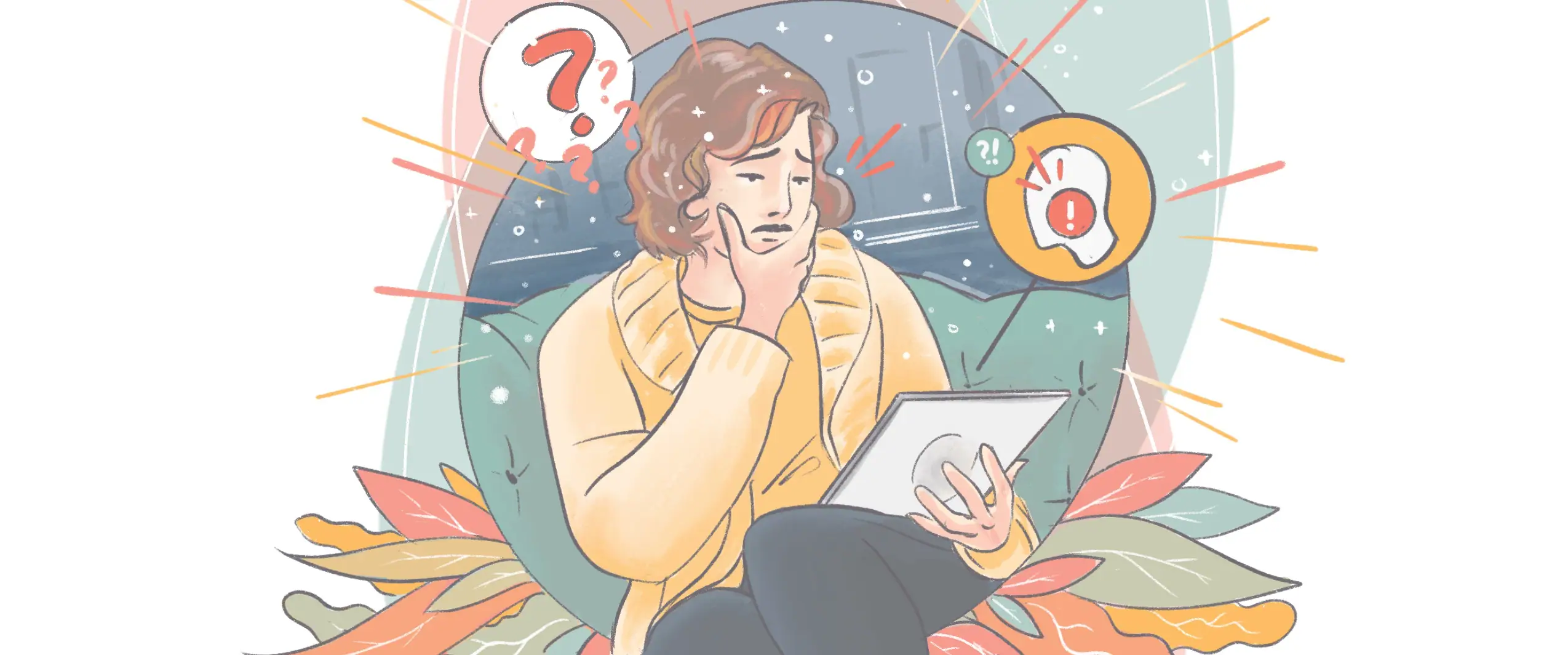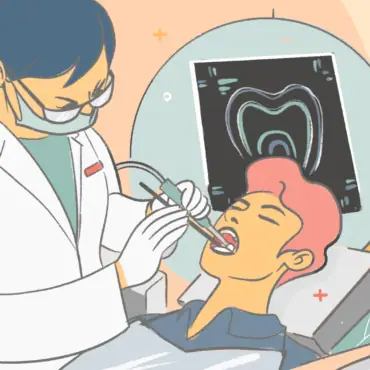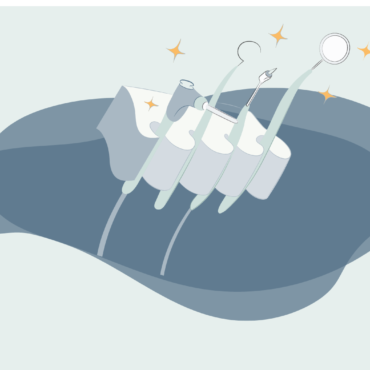Many people have heard of one or more teeth being “impacted,” especially when it comes to wisdom teeth in young adults. These teeth linger below the surface of your gums, and they are intended to emerge from the gum tissue.But, for one reason or another, they can’t.
Read on learn about the causes, symptoms, and treatment options for impacted teeth.
What is an impacted tooth?
We already hinted at it, but impacted teeth are teeth that have been inhibited from breaking through the gum line. It is also possible to have a partially impacted tooth. This happens when a tooth that has broken through the soft tissue a little bit is now stuck and can’t get all the way through.
Where do these impacted teeth come from? Surprisingly, you are born with all your teeth. The primary, or baby, teeth emerge first. These teeth become loose and come out, to be replaced by your permanent teeth which begin to grow in. Children develop one set of molars around age 6, the second molars around age 12, and the third molars which are often referred to as “wisdom teeth” come later.
The most common teeth to become impacted are the wisdom teeth. This last set of molars comes in when people are around 17 to 21 years of age. They are called wisdom teeth because you are supposedly “wiser” by the time they come in.
Though these last teeth are nearly always present, for some people they never erupt and emerge through the gum tissue. By the time they are ready to come in, the jawbone has stopped growing and many times there is not enough space for them.
However, even if they don’t erupt, impacted wisdom teeth can negatively affect the rest of your teeth. They may push on adjacent teeth, knocking them out of position, and therefore they usually need to be removed.
Symptoms of impacted teeth
How do you know if you have an impacted tooth? Sometimes, there is no way to know that you have an unerupted tooth unless your dentist takes an x-ray and discovers it there, waiting below the surface.
Other times you may experience some uncomfortable or downright painful symptoms. This may includ:
- Inflamed, sore, or swollen gums
- Bleeding gums
- A unpleasant taste in your mouth
- Bad breath
- Trouble opening your mouth
- Pain when chewing or opening your mouth
- Jaw ache or jaw pain
Symptoms can come and go so don’t assume that because they went away that no treatment is required. Furthermore, all of these symptoms can indicate the presence of other oral health problems such as gum disease or tooth decay.
Set up a dentist appointment as soon as possible to have these symptoms checked before the problem gets worse and to potentially identify any impacted teeth
What causes an impacted tooth?
So, how does a tooth become impacted in the gum tissue? There can be a few causes of impaction.
The most common reason is that your mouth simply doesn’t have enough space for these teeth. This can happen because of orthodontic treatment or as a result of your genetics.
Due for a checkup?
Find a top rated dentist near you that takes your insurance.
Experts aren’t entirely sure why humans have this seemingly extraneous set of teeth that grow in so much later than the other molars. Some anthropologists think that humans simply don’t need them anymore with the benefits of modern dental care. Now that we cook most of our foods, the human diet isn’t as difficult to chew and it’s likely that we lose fewer teeth.
Do impacted teeth need to be removed?
It is not always necessary to remove your impacted teeth. If the teeth are behaving themselves and aren’t causing any other issues with your oral health, it isn’t necessary to remove them.
However, sometimes impaction can have a negative effect on the other teeth in your mouth. This is especially true if you’ve had a lot of orthodontic work done.
Impacted teeth forcing their way into the back of your mouth can push the other teeth forward. This can crowd the remaining teeth and ruin the beautifully straight smile that your orthodontist was able to create. Your retainer may not be enough to stop this from happening.
If your dentist determines that your impacted teeth will have a detrimental effect on the others in your mouth, it’s usually best to remove them as quickly as possible. This is yet another reason why you should find a dentist and visit them regularly.
How are impacted teeth treated?
Dentists have a few tricks up their sleeve to deal with impacted teeth. Removal isn’t the only option.
Wait and see
If your impacted teeth are healthy and keeping to themselves, your dentist may recommend just waiting to see what happens. Your teeth may stay in the gum tissue permanently and never cause problems for your other teeth.
This is often the case when you aren’t even aware that you have impacted teeth because they aren’t causing any symptoms. You’ll usually find out about them when your dentist tells you because they see them on your routine dental x-rays.
Eruption aids
We said that your wisdom teeth are the most common teeth that can become impacted. However, other teeth that you actually need can also be impacted. For example, if your canine tooth is impacted, your dentist will try to encourage it to erupt. This helps preserve your oral functions and aesthetic.
Usually another tooth blocking the way is what causes this type of impaction. Dentists can often use braces or brackets to pull the interfering tooth out of the way. If this doesn’t work, your dentist may have to remove a baby tooth, or even an adult tooth to make room. This extraction procedure is most effective if done when you are younger.
If all else fails, your dentist will have to remove the tooth and replace it with a bridge or dental implants.
Surgery
If your impacted teeth are compromising the health and structure of your mouth and other teeth, usually you’ll need oral surgery to remove them. This can be an effective procedure as well if you are experiencing painful symptoms as a result of the impaction. However, you might still feel nothing, but your dentist may determine that the impacted teeth will or are having a negative effect on your other teeth.
Give $50, get $50.
Refer someone to book a dentist with Opencare and you’ll both get $50.
The extraction of impacted teeth is considered a routine and safe procedure. You’ll visit your oral surgeon and go home the same day. Some people are put under sedation for the procedure, but most are able to have the surgery with just a local anesthetic.
The procedure only takes about 45 to 60 minutes to complete. Most people heal within 7 – 10 days and can go back to their normal activities within just a couple of days.
Problems with partially impacted teeth
So far we’ve been focusing on issues with fully impacted teeth, but what about partially impacted teeth? When a tooth never erupts, it is protected from plaque and tartar buildup and the devastation that mouth bacteria can cause through tooth decay.
Partially impacted teeth have no such protection. Plus, they are harder to clean since so little of their surface is exposed and they are (presumably) so far back in your mouth.
This means that they are at risk of cavities, decay, infections, gingivitis in the surrounding gum tissue, and other issues.
When to see a dentist for impacted teeth
If you are experiencing any of the symptoms we’ve mentioned in this article, don’t wait to visit the dentist. You may be suffering from an impaction or any other number of dental problems. The earlier these problems are treated, the easier it is to correct the issue.
It’s also important to keep up with regular dental visits. You may not be aware that you have an impacted tooth that can cause problems for your other teeth until it is too late. Dentists can use dental x-rays and other preventative tools to stay ahead of these issues and help preserve your oral health.
Due for a checkup?
Find a top rated dentist near you that takes your insurance.
Don’t have a dentist? We’ll help you find a dentist near you today and level up your oral health and wellness!







